Fresh Meat: Best New Artists (January, 2021)
Including Gyakie, Mohbad, Roho, Filah Lah Lah and more!
Including Gyakie, Mohbad, Roho, Filah Lah Lah and more!
When we left things off in 2020, the crop of fresh young talent on the continent was growing at an exponential rate. Despite the effects that a pandemic had on the music industry, artist discovery was rife throughout last year, with many newcomers – from SGaWD to Bella Shmurda – earning their stripes in no time. The lack of in-person collective experiences meant that audiences were only able to connect directly online to their favourite artists, which made building connections with new artists tasking but not beyond impossible.
Omah Lay, a Nigerian artist who had released his debut EP ‘Get Layd’ back in May quickly amassed quite the following, earning a record 1.8 million monthly listeners on Audiomack in less than a year. He wasn’t the only one making career-defining strides, Tems’ debut EP ‘For Broken Ears’ topped charts both at home and in the diaspora, as did Ghana’s Skillz 8figure, and South Africa’s Filah Lah Lah, who earned a prominent spot on Apple Music’s African Artist Spotlight. While these artists enjoyed new levels of accolades and increased visibility, they have set a fine pace already being emulated by a milieu of young underdogs boldly experimenting with the genre.
With the promise of the new year, all eyes are on the next generation of hitmakers ready to make music that is equal parts genreless, imaginative, and true to their personhood. From Mavin’s latest signee Ayra Starr to South Africa’s ethereal Roho, below are some of the artists you have to pay close attention to.
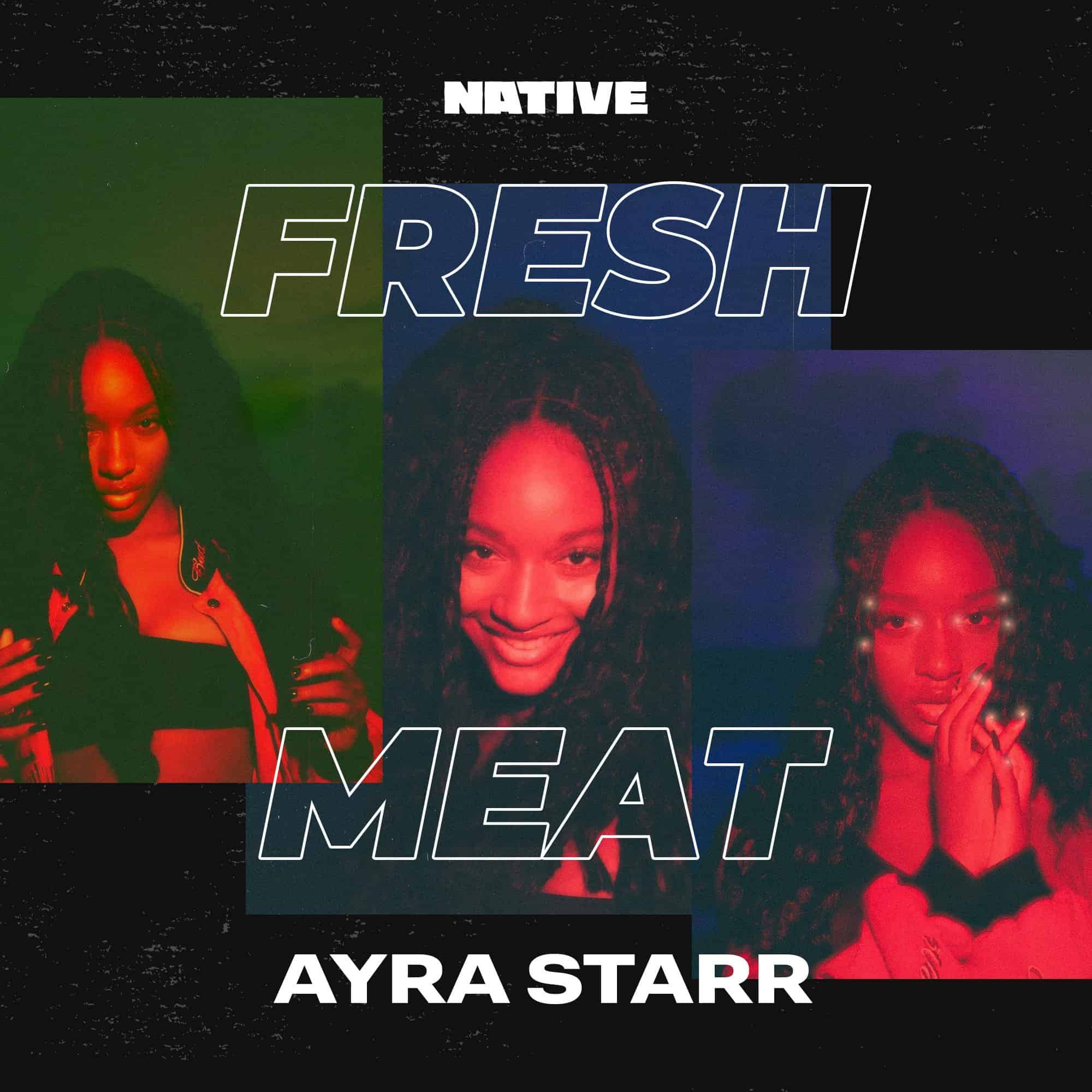
Activated last week Friday, Ayra Starr is Mavin Records’ latest signing, and just like the rap sensation who preceded her, Ayra is coming out the gate hot. On Friday, Ayra Starr released her five-track debut EP that shot her straight to the top of the streaming charts, the lead single, “Away” earning over 200 thousand views in her debut weekend.
Just 18-years-old, Ayra Starr was discovered on Instagram by Mavin head huncho, Don Jazzy who was attracted by her dynamic and compelling covers. An avid music fan from an early age, Ayra’s sprawling musical taste is reflected in her dexterity as an artist. In the only thirteen minutes fans have been able to hear so far, Ayra is as much ballad R&B singer, as she is an adept Pop harmoniser. She is, at the same time, seeking freedom from a toxic lover on “Away”, as she is singing about attracting a potential partneron “Ija”, who turns into her fairy-talk match on “Sare”.
Inspired by Beyoncé, Rihanna, Shakira, Sia, and on the Afropop scene, 2Face, Ayra is a unique pop star in her own right, with the spiritual vocal flair of Tope Alabi, and the indigenous language capabilities of Andjelique Kidjo – two more of her sonic inspirations over the years. But as much as Ayra Starr takes cues from legends who earned their name almost at the start of her life, she is also a voice for her generation, co-writing with her younger brother to produce lyrics that connect with Gen Z listeners across continents, across cultures. Particularly the coming of age record, “Ditr” narrates how the harshness of the world hits like a truck as we make the rough transition from adolescence to adulthood and has thus pushed many towards vices, that might start innocent at first but end as a slippery slope. Ayra is very aware of the complexities that come with the years ahead of her, but she’s got the confidence and self-assuredness that we’re sure will serve her well, and through her self-affirming music, wishes to help young girls find that in themselves also.

The first and undoubtedly most important thing Meji needs you to know about him is that, he’s “The One.” It’s a belief he swears by, a belief every potential fan has to buy into without reservation. In Rap music, messiah figures are a constant part of the genre, rappers who believe that they’re primed to resuscitate the genre on their way to widespread prominence. Fancying himself an adrenaline shot to Nigeria’s commercially flailing English rap scene, Meji tends to carry himself with the same delusional gait of the archetypal messiah, but he sounds confident (as does his music) enough to make you believe, or interested at least.
Playing in a field where controversy brings attention, Meji broke out in the most likely way possible: beef. One of the rappers to get ticked off at Blaqbonez calling himself the best rapper in Africa, Meji issued his own diss tracks, “Blaq Out” and “100 Clowns”, the latter of which went viral after its caustic and funny music video came out. Since then, though, he’s been proving himself less of a rabble-rouser and more of a purposeful noisemaker. In late September, Meji shared his debut EP, ‘The One’, an impressive showcase of his considerable qualities as a Rap artist and songwriter, as well as a strong statement of personal intent. Across its six tracks, replete with moody, glistening keys and knocking low end bass, he lets listeners in on his ambitions, oozing the sort of unyielding tenacity that’s analogous to, say, a Meek Mill.
With a strong tilt towards punchlines and a naturally boisterous cadence, Meji’s assurance in himself is as intoxicating as it is outlandish, a true representation of his rap dreams. “I am the one that was chosen to break every chain/like Jesus, turn water into wine, I’m transforming the game,” he raps on the title track of the EP, while deeming his predecessors to be John the Baptist. For all his ambitious boasts and undeniable desire, what will keep Meji on his upward trajectory, alongside his willingness to keep growing as a music maker, is that he still has personal stories share. “95”, the closing track on his EP, is a riveting, affecting piece of storytelling that charts the complications of his birth to partly weaving the story of growth into a young adult. There’s clearly more where that came from; Meji’s story is just getting started, pay attention now.
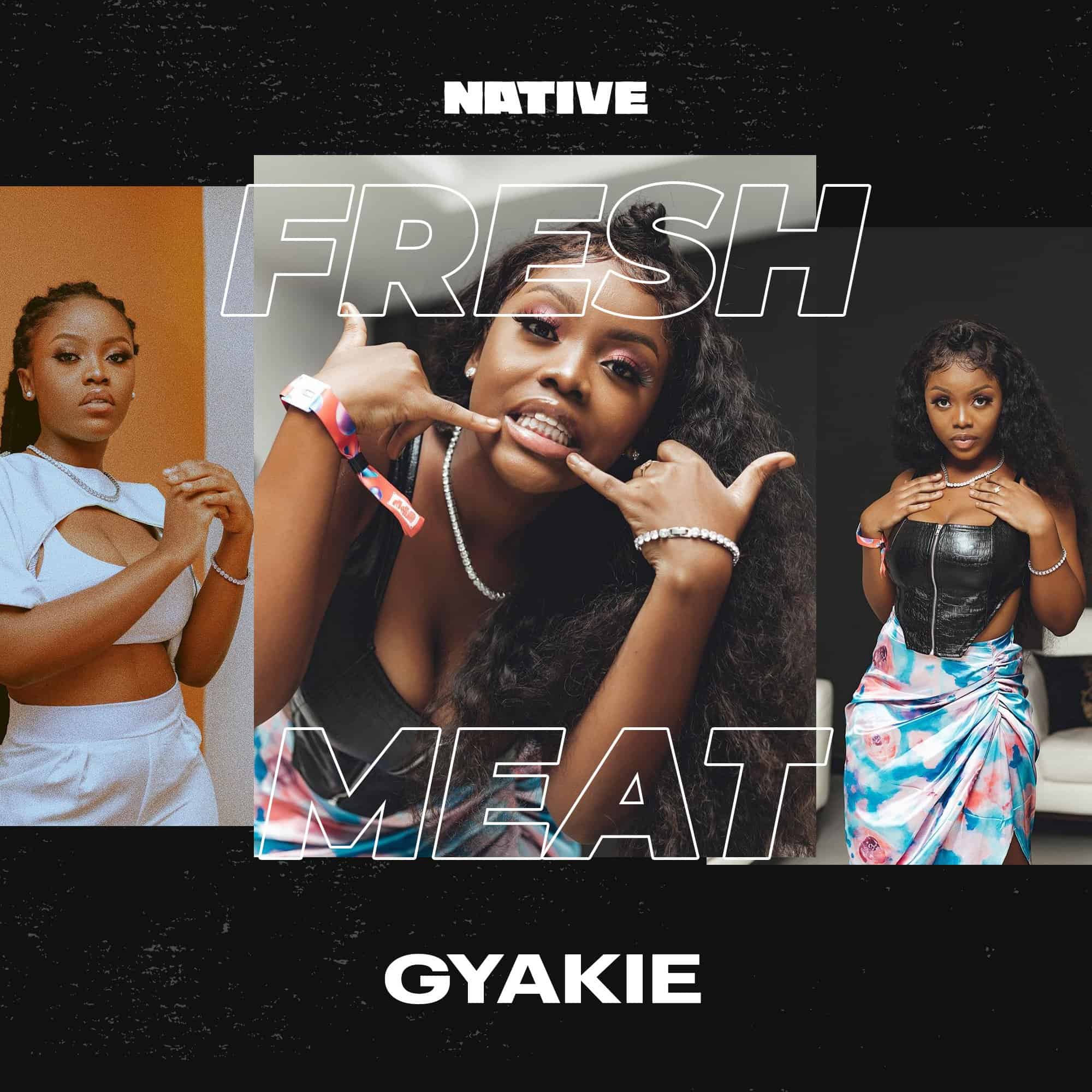
Ghanaian singer, songwriter, and performer, Gyakie comes from a legendary musical family lineage in Ghana. Born Jackline Acheampong, the singer is the daughter of Ghanaian Highlife legend Ernest ‘Owoahene’ Nana Acheampong, popularly known as Nana Acheampong, one-half of the famous Lumba Brothers. Although “music lives within her” as she declares on her debut EP ‘Seed’, Gyakie is careful to forge her own name and path in the music industry outside her famed father. In a recent interview with Okay Africa, the budding singer shared, “my dad is legendary, he did his and I’m here to do mine as well,” a confident statement that immediately becomes clear on further perusal of her vibrant and soulful music catalogue.
Gyakie started releasing music in 2019, realising, on her journey to begin a professional career in international business, that she could no longer avoid her calling to the musical arts. Her first single on her Apple Music page, “Love is Pretty” is an Afro-R&B and Reggae affair, where Gyakie ponders emotional matters. Intermingling English and Twi into her lyrics, Gyakie shows the range of her voice, singing with high-pitched pained vocals about a romantic partner that needs convincing of her love. The best kind of music is music that makes you feel, and Gyakie’s alluring vocals certainly conjure fraught memories of my own relationship trysts. By her second release, “Never Like This”, Gyakie was already trying a different stylistic range, this time relying on the vibrant allure of Afropop to deliver another romantic number that showed off the singer’s impeccable pen game. It’s why her debut EP ‘Seed’ is the perfect addition to her catalogue, showing more of Gyakie’s mastery of genres like never before. Though short, running just under 15 minutes, the 5-track EP is a euphoric listening affair, much of its sound rests on delicate pianos, xylophones, and gentle wind instruments, matching the gorgeousness and tenor of Gyakie’s lyrics. “Forever” is a love anthem that finds the singer celebrating her love interest, and wishing to enjoy their connection for the rest of her life. It bleeds into one of the EP’s promotional singles, “Whine” which is a catchy and upbeat Afro-Reggae number that will certainly have you whining your waist in your bedroom. Just as a fruit seed is planted into the ground to blossom into rich and tasty fruit, so also does Gyakie’s debut musical effort plant the necessary seeds for her evolution. By its end, the project’s title becomes a testament of growth; Gyakie is blossoming and we’re all bearing witness to her journey, one track at a time.
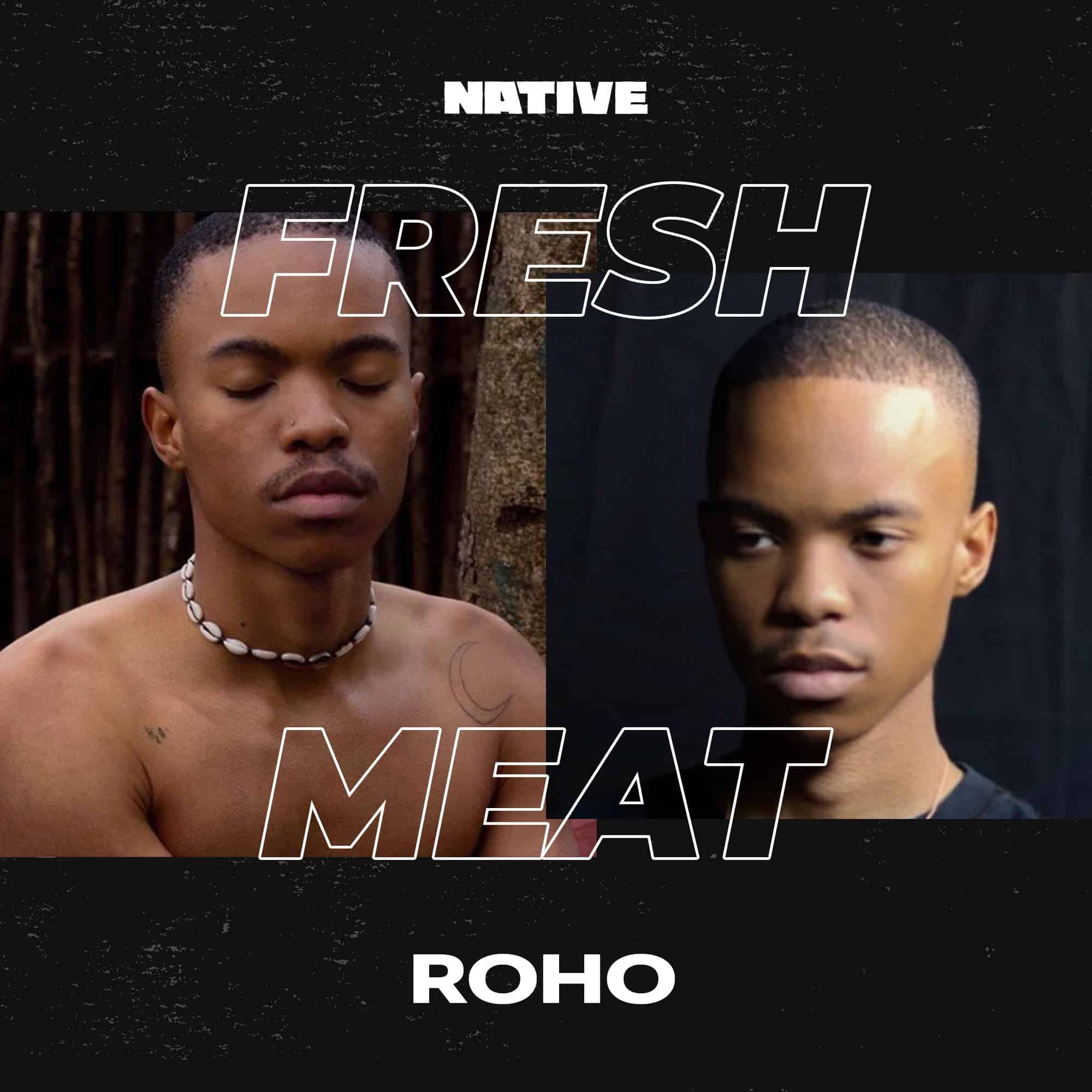 After garnering their first wave of major recognition, nascent artists are often expected to follow-up with new material at a fairly quick rate, in order to keep that attention and double the amount of ears tuned to them. In his case, South African singer Roho travelled the opposite direction, opting to remain relatively quiet after his 2019 single, “Goin’”, began to gain traction. Apart from sparse feature appearances, Roho moved rather furtively until the build-up to his debut EP, ‘Ephemeral’, which he shared in October 2020.
After garnering their first wave of major recognition, nascent artists are often expected to follow-up with new material at a fairly quick rate, in order to keep that attention and double the amount of ears tuned to them. In his case, South African singer Roho travelled the opposite direction, opting to remain relatively quiet after his 2019 single, “Goin’”, began to gain traction. Apart from sparse feature appearances, Roho moved rather furtively until the build-up to his debut EP, ‘Ephemeral’, which he shared in October 2020.
For those who encountered “Goin’”, an immersive slice of alt-R&B, it was quite obvious that the singer’s potential had no ceiling, so the subsequent period of silence was a bit frustrating to enamoured listeners. However, as ‘Ephemeral’ now proves, good things come to those who wait, and sometimes great music takes time. Breaking down its process in a podcast episode for Next Gen Greats, Roho explained that the creation of the EP began after a period of creative drought, and it’s evident that the fertile run after translated into a complete body of work. Relying on water as its central, symbolic element, the 7-song project is an engrossing introduction to Roho, as an intensely expressive writer and an adult with a sense of purpose.
Extremely cohesive without being remotely uniform, ‘Ephemeral’ is built around atmosphere and emotional honesty. The production is cut from innovative corners of alt-R&B and Neo-Soul, a lush and aqueous sonic soundscape that’s easy to fall into but slightly jagged enough to keep listeners on their toes. Across the set, Roho sings of finding self, pushing himself to be better, reminiscing on previous romantic situations, and painting intimacy as something equally carnal and sacred. Created as “an ode to a transformative period in [his] life” – summer of 2018 – it becomes increasingly glaring with each repeat, front-to-back listen that, Roho’s ability to memorialise the past while moving forward is his biggest strength as a writer.
At the moment, he’s working on turning the EP into a short film while also trying to “[get] better at this music thing”, indicators that he’s here for the long haul. Ultimately, Roho is working to level up, even if he’ll take breaks to ensure whatever he’s putting out represents his best, at every single point in time.
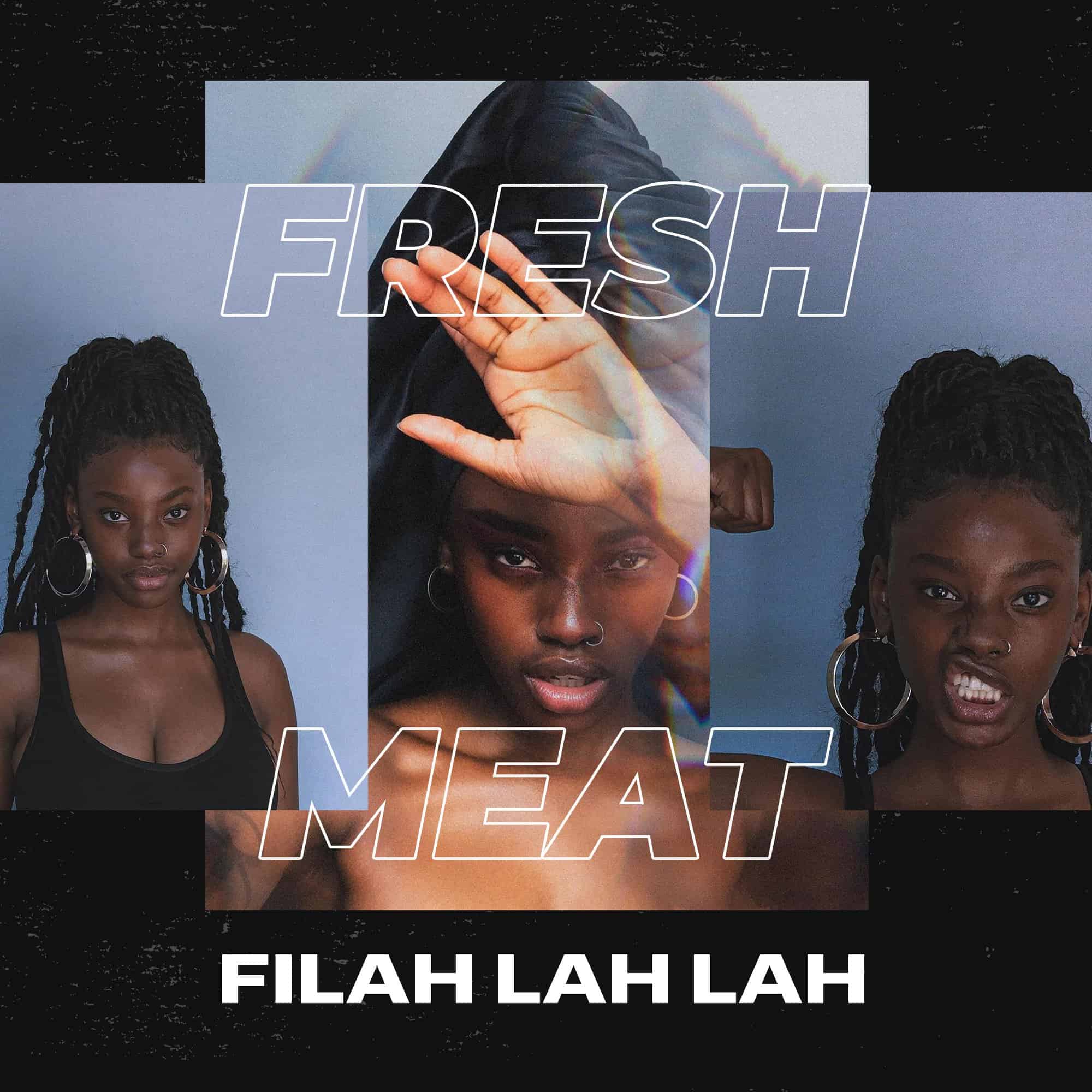
Afropop, Hip-Hop, House, Gqom and more recently Amapiano, may be dominating South Africa’s music scene these days but R&B and Soul is becoming increasingly popular in the country. Cue in talented new singer Filah Lah Lah whose successful two-year run is a testament to this fact. Although Filah Lah Lah is relatively new in the scene, she earned the title of Apple Music’s New Artist Spotlight for October following the release of her debut EP ‘Filahsofy’ two months earlier. The title has been held by rising African acts such as Rema, Amaarae, Nasty C and more, who have continuously redefined the sound of music coming from the continent.
Filah Lah Lah’s debut is a stunning 5-track offering that deals with intimate matters of the heart from a youthful fresh perspective. Over Neo-Soul melodies and 808 Trap beats, Filah Lah Lah candidly reflects on past situationships and ponders about new romantic interests, having conversations with herself on the atmospheric beats that sound like falling into a daydream on a summer day as you watch the clouds go by. Released during the coronavirus-induced lockdowns, Filah Lah Lah saw an opportunity to show her growing fanbase her emotions in their purest forms. You can hear her growing pains on records such as “Defiant” where she admits to nursing sad thoughts about her reality and indeed that of many young people. She sings “Isolation’s the name, overthinking’s the game/senses are heightened but Lord knows I’m trying,” showing listeners that she’s gone through the relatable motions that being cooped at home could bring and the realities that come with living with so much uncertainty about the future.
There are moments where the project seems diaristic as Filah Lah Lah covers intimate topics, such as pining for a lover on “This Is” and “Just In Case”; at times she’s happy, other times she’s liberated, hurt, jealous, and even anxious. Lah Lah leaves no stage of the relationship process out, soundtracking everything from the longing, to the getting under someone else, the getting over, and even to the personal promise to stop texting him. Filah Lah Lah is constantly cascading through vocals that make the succinct project at times seem longer than it really is. Listening to ‘Filasofy’, one is reminded of SZA’s ‘Ctrl’ with its similar lyrics tracking how we fall in, out, and back in to love but Lah Lah’s personhood is peppered into the tapestry of each song on the project, showing an unmistakable sense of self and confidence. That self-assurance earned her new levels of recognition at the time of the project’s release, marking her as one of the ones to watch for the new year. With a handful of singles and a debut EP under her belt, Filah Lah Lah is carving her own corner in the music industry and we can’t wait to see what she cooks up next.
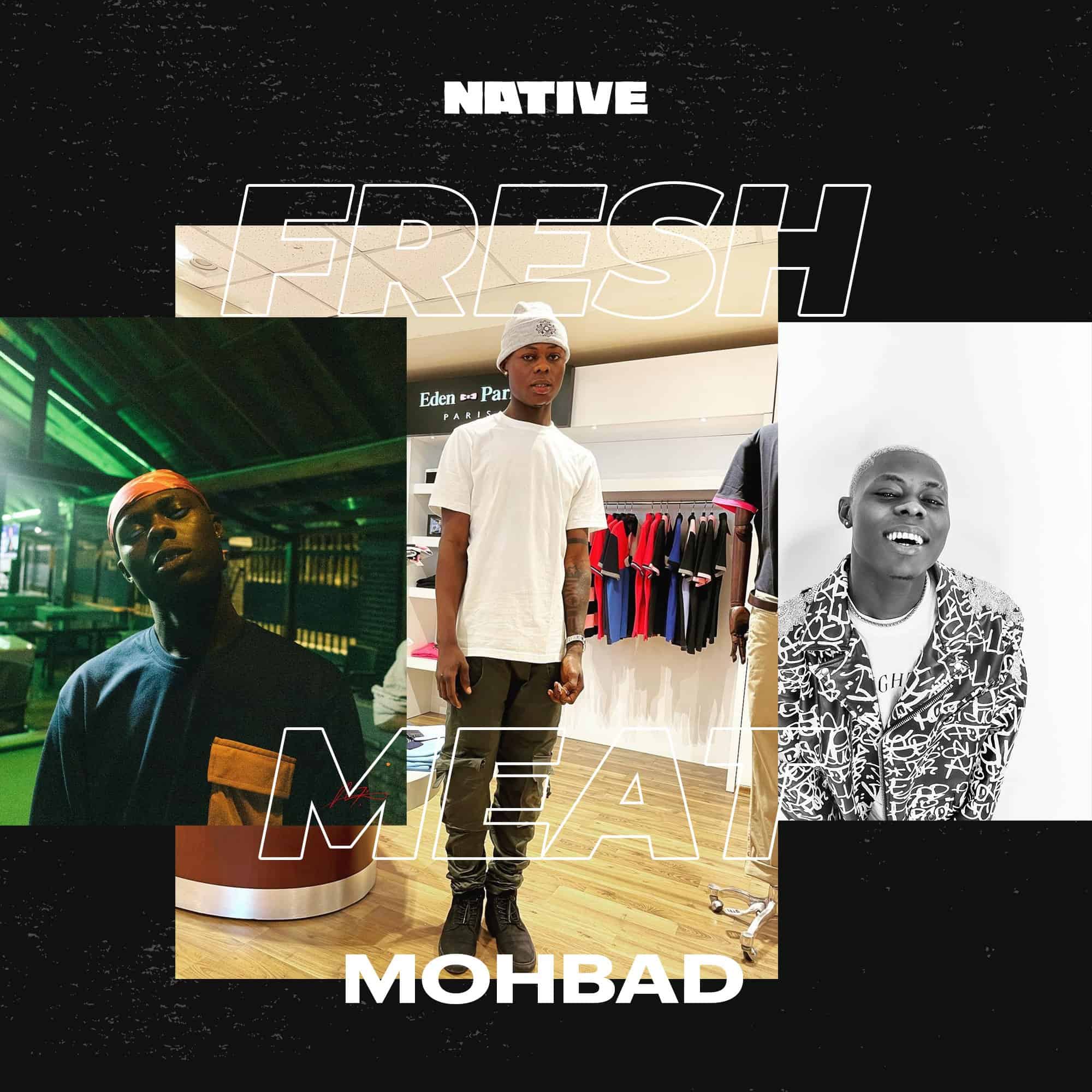
Raised in Lagos, the artist born Ilerioluwa Oladimeji Aloba had the privilege of being exposed to indigenous Yoruba music that described the harsh reality he could relate to. Seeing how music change the lives of others from poor backgrounds, Aloba was also encouraged to start making music, adopting the moniker, MohBad as a characterising nod to his bad boy status. His knack for combining street-savvy storytelling with melodic fuji-inspired singing made him the perfect fit for Naira Marley’s Marlian label and, since he signed joined last year, MohBad has grown to be a real contender for the next Street-Hop crossover artist.
Last November, MohBad shared his debut tape under the label, ‘Light’ showcasing his introspective pen game as he narrated stories from personal experience over the 8-track duration of the EP. The EP positioned him as the number one “bad boy” of the Marlian label and with the 2nd track, “Marlians Anthem”, we also saw just how much faith the head of the label has in the 24-year old artist. Naira Marley also made a guest appearance on “Ponmo”, alongside Lil Kesh, while Davido was featured on “Once Dede” to give the album its mainstream spotlight. ‘Light‘ merits that kind of attention; while the big features put the tape on a lot more people’s radar, it’s his catchy melodies and compelling lyrics that holds their attention.
Closing 2020 with his contributed vocals on Rexxie’s latest hit single, “KPK”, MohBad earned the enviable status of a trendsetter as the song grew to become the soundtrack to music lovers’ flashy posts on social media. The song’s viral success saw MohBad’s profile really take off and he now has his own dedicated community of fans who give his songs massive streaming numbers and are eagerly waiting for his next release. MohBad’s acclaim should only continue to expand, especially now that he has more hit songs to feature on playlists and even perform for shows whenever concerts finally return.
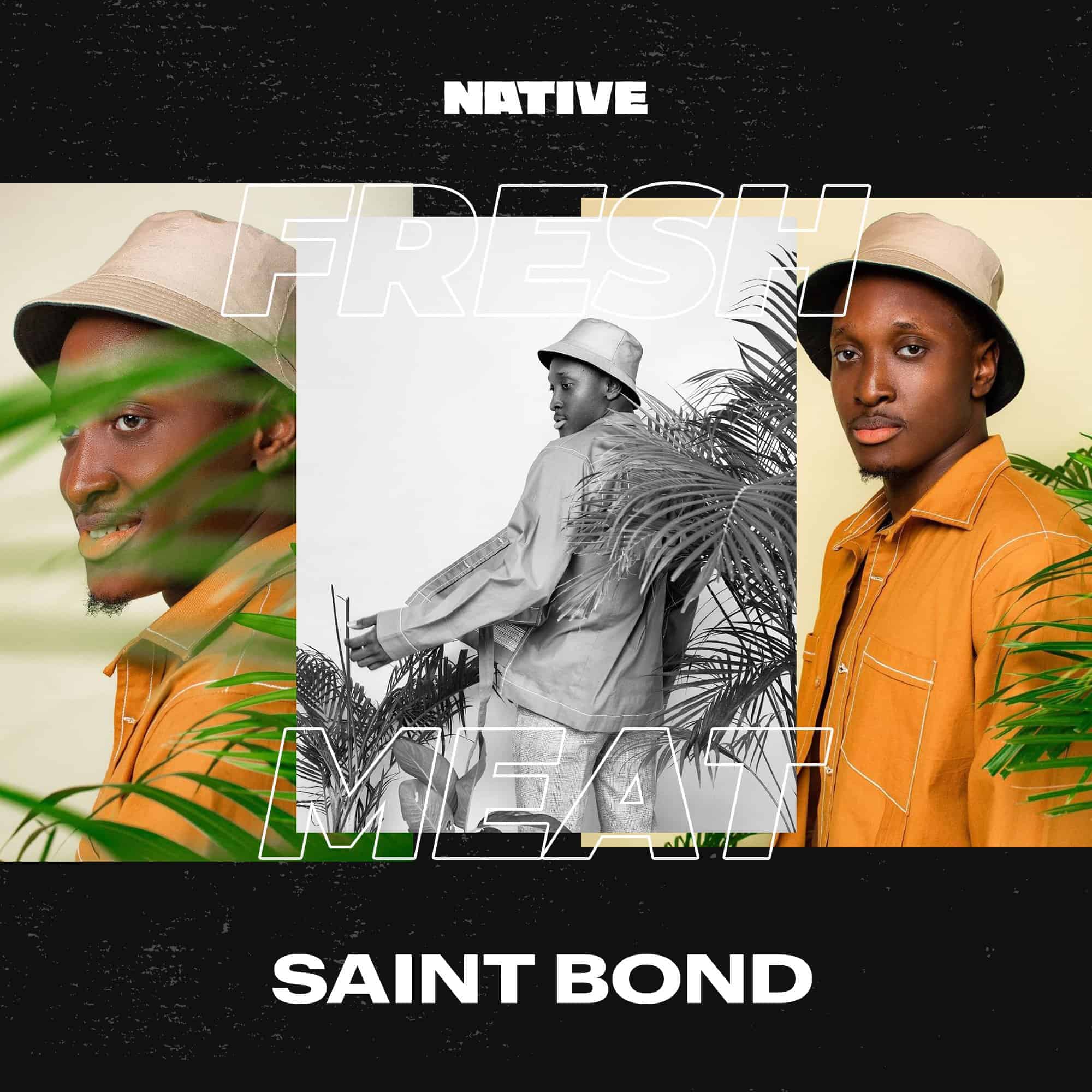
Boasting internationally renowned dances and collaborations with global pop stars like Beyoncé and J Balvin, pop music of Nigerian origin is now one of the most popular genres in the world. The spotlight has allowed the new generation of emerging artists to quickly grow their audiences as they now have the potential to break out in new, prosperous ways.
Saint Bond emerged as one of the promising music talents 2020 had to offer as his artistic range and clear-eyed vision set him apart. His skill was first proven as the creative director behind DJ Cuppy’s acclaimed debut album, ‘Original Cuppy’ which saw her expand her sonic pallet to explore trap, soul, R&B and Afropop sounds. Bond is now showcasing himself as a singer and producer with his latest release, “Free”, crafting a gleaming and joyous resistance anthem against police brutality.
Producing the euphoric beat for “Free”, Saint Bond hybridises highlife guitar riffs and EDM synth harmonies to make the catchy baseline. Singing “Police go stop us/ they wan control us/ The tryna’ hold us down/ together we’re stronger,” with tender elation, “Free” is the kind of motivational song we don’t hear enough of these days, as Saint Bond encourages listeners to unite in the fight against oppressive police systems. The breezy groove of the song and its progressive message struck a code with Pharrell who hand-picked it as one of the 10 tracks for his latest project, ‘i am OTHER, Vol. 2’, a joint compilation tape between his iamOTHER collective and SoundCloud.
‘i am OTHER, Vol. 2’, focuses on empowerment, unity and speaking up about racial injustice. And with the EndSARS protests still fresh in our memory, Saint Bond was able to channel sentiments from the police brutality to deliver a bop that speaks on his real-time experience as he highlighted the traumatic effects of being harassed by people who are supposed to protect us; “The story dey lead me to depression/ The matter dey fear me to ask question”. “Free” has now garnered nearly 10k streams on SoundCloud and it’s currently one of the most streamed songs from the tape on Apple Music. The song’s success emphasises not only Afropop’s dominance in the global music scene, but also clues us in to Saint Bond’s promising ability to make hits, as “Free” is ganing more attention than the tape’s lead single, “Greatness” by WooDaRealesr and Killer Mike.
Image credits: NATIVE
Words by Debola Abimbolu, Dennis Ade-Peter, Tami Makinde, and Adewojumi Aderemi

